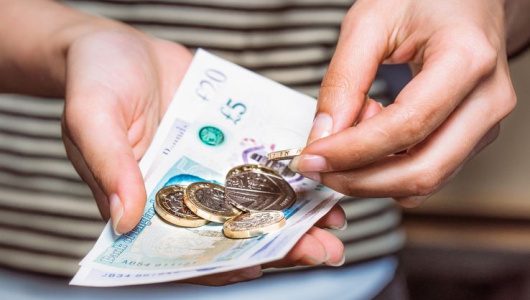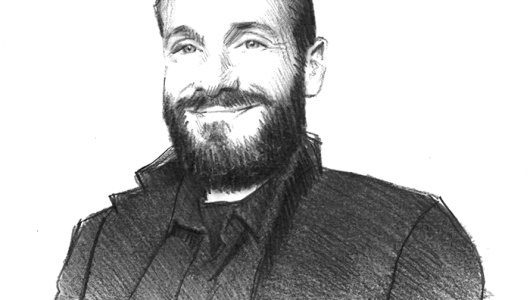
Oleksandr Usyk was declared the first undisputed heavyweight champion of the four-belt era after a breathless, brutal and bloody 12-round bout against Tyson Fury on Saturday.
It was a sporting spectacle of the very highest quality, a battle between two undefeated, elite fighters at the top of their game.
But when the post-fight interviews had finished, a thought occurred to me. Years ago, the idea of watching such an event taking place in Saudi Arabia was almost unthinkable.
I think it’s fair to say it isn’t a country that’s particularly renowned for its sporting prowess or its ability to produce big-name stars.
Their national football team, which wasn’t formed until 1954 and took until 1994 to qualify for a World Cup, is currently ranked 51st in the world by FIFA.
However, the country’s influence on the footballing world from a financial perspective has been nothing short of seismic.
It all started when Saudi Pro League club Al Nassr shocked everyone by signing Cristiano Ronaldo – at the time considered to be the world’s best player – from Manchester United.
The Gulf Kingdom has since shown it is prepared to pay astronomical wages to attract the top stars – and largely the plan has worked.
Ronaldo is reportedly being paid an eye-watering £176m a year, or just over £3m a week.
Brazilian World Cup winner Neymar, who joined Saudi Pro League side Al Hilal from Barcelona, and French star Karim Benzema, who signed for Al-Ittihad from Real Madrid, are receiving similar sums.
Prior to him signing for MLS side Inter Miami, Al Hilal reportedly made an audacious bid to bring Lionel Messi to the club in a deal worth a whopping £245m per year.
And the same team made a world-record bid of 300m euros to sign PSG striker Kylian Mbappe.
However, Saudi Arabia isn’t just looking to attract talent to its own leagues – it’s branching out to others too.
And this is down to the increasingly influential Public Investment Fund (PIF).
PIF owns three of the top teams in Saudi Arabia, but in October 2021 it also put its stamp on the Premier League by taking control of Newcastle United.
Saudi Arabia is also set to host the 2034 men’s football World Cup after Australia, the only other contender, ruled out a rival bid.
But it isn’t just football where the injection of Saudi capital is being felt.
The Kingdom has pumped billions into other sports, partly in a bid to boost tourism and reduce its future dependence on oil.
One such sport is Formula One. The inaugural Saudi Arabian Grand Prix took place at the Jeddah Corniche Circuit in 2021 and is now in its fourth year.
Earlier this year, it unveiled plans for a new state-of-the-art, purpose-built circuit that is set to host the race in the future.
Last year, PIF also set their sights on the world of golf by acquiring the LIV Golf organisation.
And yesterday, there were rumours that a merger between the PGA Tour and PIF was closer than ever after the two parties reportedly exchanged term sheets.
In March, snooker’s biggest stars headed to Saudi Arabia for the inaugural Riyadh Season World Masters.
Just this week, Saudi Arabia’s venture into the world of tennis continued with a multi-year sponsorship deal to support the WTA women’s rankings.
All this investment forms part of Vision 2030, led by Crown Prince Mohammed Bin Salman, who is aiming to put the Kingdom well and truly on the global stage.
When Dragon’s Den star and entrepreneur Deborah Meaden spoke at Timeline’s Adviser 3.0 conference in London last week, she said money was still the thing that changed the world.
It’s hard to argue with that – especially when you see the impact Saudi cash has had on the sporting world.
Morally, many will question why sports stars and organisations continue to arrange and participate in races, tournaments, fights and matches in a country with a dire human-rights record.
And of course, the answer is obvious. Money. As long as the Gulf state keeps giving, the more it will continue to influence sport across the globe.
Increasingly, it will be Saudi Arabia that will be centre stage for some of the world’s biggest sporting events.
As Bob Dylan once sang: “The Times They Are A’ Changin’.”
Change is often good. It’s what drives innovation and keeps us all on our toes. But the Victor Meldrew in me can’t help but think, ‘I miss the good old days.’
I’ve loved sport from an early age and although money has always been an important part of it, it feels like it’s now the sole consideration.
In my opinion, its taken some of the magic out of it. And apart from the private equity-backed PIF, I’m not sure who that really benefits.















Sad innit! Not really sport anymore, just money. Personally I just wish the Arabs would take their money and go away. F1 in the desert – madness. The only thing they contribute to motor sport is petrol – and that is obtainable elsewhere. Please just stick to Camel Racing.